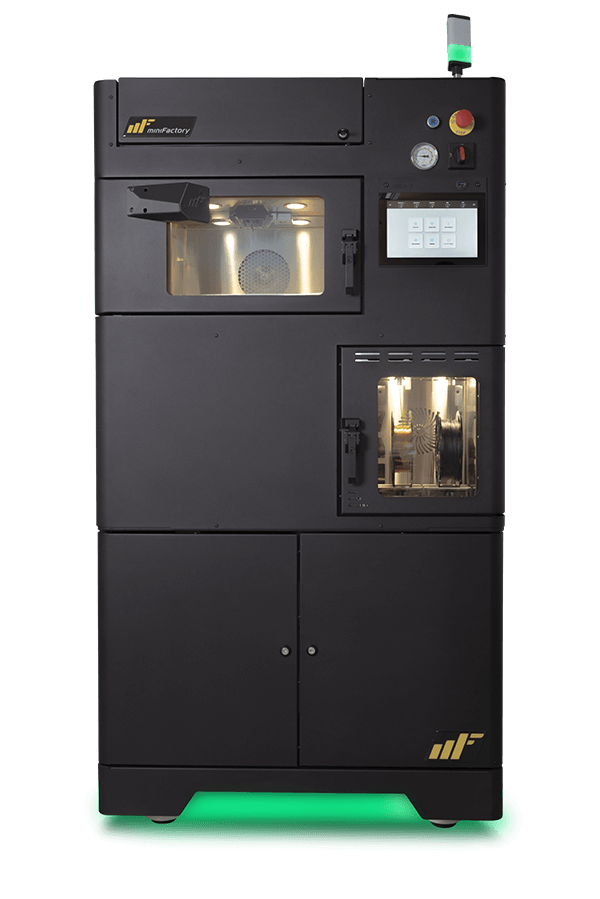Menu
close
The food industry is highly dependent on mass production and process automation. As large volumes of units are being produced, keeping the processing machines up and running is extremely important. The downtime in process automation of the food industry is costly and should be prevented by all possible means. Since the processing machines can be complicated and consist of various parts, the spare parts stock needs to be extensive. 3D printing in the food industry enables digital warehouses of spare parts and special tools to optimize the inventory.
3D printing in the food industry enables the manufacturing of complex geometries to create development parts for processing machinery. With food-certified materials and structural lightness, high-performance polymers printed with the miniFactory Ultra open unprecedented opportunities for designers.
Different manual steps of food processing require a wide range of assistive tools and jigs. With high-performance polymers, these production aids can be tailored according to the specific need of the operation
Additive manufacturing of high-performance polymers offers on-demand manufacturing of spare parts. In addition, 3D printing in the food industry enables on-site production and minimizes the downtime of processing machinery.
With 3D printing in the food industry, manufacturing parts for production machinery can be done rapidly and with optimized design. Additive manufacturing provides the freedom to design complex structures optimal for the application. Furthermore, when such part production is possible, the components of food processing machinery can be tailored to match the needs of the production. This way, the production line can be customized to meet the demand of the customer.
Good examples of parts produced with miniFactory Industrial 3D Printers are various dispensers and nozzles. These parts can be manufactured on-site using certified materials. Such production enables rapid development, testing, and implementation.
When the application requires extreme chemical resistance combined with geometrical complexity, 3D printing of high-performance polymers meets the demand by providing flexible manufacturing and mass customization of parts. A great example of such an application is bottle sterilization fixtures that can be easily changed according to the size of the bottle. For more information about durable chemical-resistant parts, read our article here.
3D printing in the food industry provides durable tools and fixtures that are safe to use. High-performance polymers offer excellent mechanical properties in elevated temperatures, making them an obvious choice for the food industry.
Food process lines have countless amounts of different spare parts. Due to the highly costly downtime of these production lines, these spare parts need to be available when machinery malfunction occurs. 3D printing in the food industry opens the possibility of efficient and flexible production of spare parts where needed. Spare parts can be manufactured individually and don’t need to be purchased in large quantities to achieve a lower purchase price. With 3D printing, the cost per part remains affordable and flat regardless of the order quantity. This way, the warehouse can be optimized without compromising the risk management of machinery maintenance.
When the spare parts are produced on-site and on-demand, the need for challenging logistical decisions is also minimized. By doing so, the industry can move toward a more sustainable future with additive manufacturing.

Contact us and our specialists will be in touch shortly.
"*" indicates required fields